Everyone is unique and there’s no exact checklist of symptoms, but you may feel contractions, cramps and pelvic pressure

When you’re close to your baby’s due date, each day that passes can feel like 100. Time becomes relentless — just like calls from well-meaning loved ones asking if you’re still pregnant. You need a sign (anything!) to signal that labor is near. But do signs of labor that are 24 to 48 hours away exist?
Cleveland Clinic is a non-profit academic medical center. Advertising on our site helps support our mission. We do not endorse non-Cleveland Clinic products or services. Policy
“There are no real rules with labor,” says Ob/Gyn Jonathan Emery, MD. “It’s completely variable. If you take 10 people, you’re going to get 10 different stories about what it was like for them before they went into labor — even between pregnancies.”
But Dr. Emery says there are some early signs of labor that may just happen to you, such as:
So, what exactly are you looking and feeling for? Dr. Emery breaks it all down for us.
Signs that labor is imminent can be a bit of a moving target. There isn’t a right way when it comes to childbirth. Signs of labor can vary — there’s no step-by-step list of how it all goes down, and the only thing you can count on is that your experience will be unique to you.
Early labor can last from six to 12 hours — and one of the most common signs of early labor is the start of contractions. Dr. Emery outlines what you may feel during this phase of early labor.
When you think of labor, you probably think of contractions. And in most cases, you may start to feel contractions during early labor.
While you’re in the early labor phase, your contractions typically only last about a minute and are anywhere from five to 15 minutes apart.
“The frequency and intensity of contractions determines labor,” says Dr. Emery. “But there are some physical symptoms that happen during that time.”
You may feel the type of cramps that usually happen with menstruation.
“These cramps are different from Braxton Hicks, which are usually painless false contractions that happen when the uterus tightens,” explains Dr. Emery. “These period-like cramps may be the beginning of mild contractions. They’re not too painful, but they’re noticeable. They may come and go over hours or even a couple of days.”
You may start to feel pressure in your vagina or pelvis.
“This may be due to ‘lightening,’ which is when the baby drops down from the abdomen. You may even feel lightening as pelvic pressure or even low back pain,” shares Dr. Emery. “But keep in mind that some people don’t experience this drop until they’re in actual labor.”
Some people notice a change in their vaginal discharge, which may signal the passing of their mucus plug. The mucus plug is an accumulation of mucus that forms a seal over your cervix’s opening. It helps protect the fetus from unhealthy bacteria outside of the uterus. As the cervix starts opening in preparation for labor, you may lose the mucus plug (also called bloody show) in one blob or gradually.
“Decades ago, people used to think that if you passed your mucus plug, it meant that you would be in labor in a certain number of days,” notes Dr. Emery. “But now we know that it can be nonspecific. You can lose the mucus plug, not go into labor, and the mucus can even re-accumulate in the cervix.”
Even if the mucus plug stays intact, you may notice other changes to your vaginal discharge.
“It can become more watery, stickier and thicker, or maybe a little pink before labor begins or at the early stages of labor,” says Dr. Emery.
Dr. Emery says that while there are other potential signs of labor, they have less real science to back them up. These signs of labor include:
“One or more of these signs of laboring might happen for some people, but there’s no clear evidence that they’re related to pre-labor or early labor,” clarifies Dr. Emery.
While the early signs of labor may happen at home — and may happen over the course of several hours — you want to be in the hospital when you start active labor. This phase of labor can last between four and eight hours.
Signs of active labor include:
“Labor can progress quickly and so recognizing active labor means it’s time to think about heading to the hospital,” emphasizes Dr. Emery. “The active stage of labor is marked by an increase in the rate of dilation or cervical opening. For some, the cervix can dilate to 10 centimeters over one to two hours in active labor.”
If you think you’re having signs of labor starting, Dr. Emery says you should time your contractions. When they’re happening every five minutes and are so strong that you can’t walk or talk, it’s time to call your prenatal provider.
If you’re experiencing any of the following, you should seek medical care right away:
And even if your water breaks, but you don’t have contractions, you should still call your doctor.
Learn more about our editorial process.

Staying up-to-date on vaccines encourages a healthy pregnancy, but not all vaccines are recommended when you’re pregnant
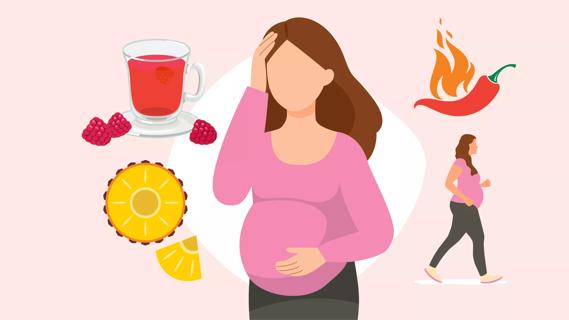
Science says only one way actually works, but there are a few others that are still safe to try

When a growing fetus puts pressure on your abdomen, your belly button may pop out or even flatten
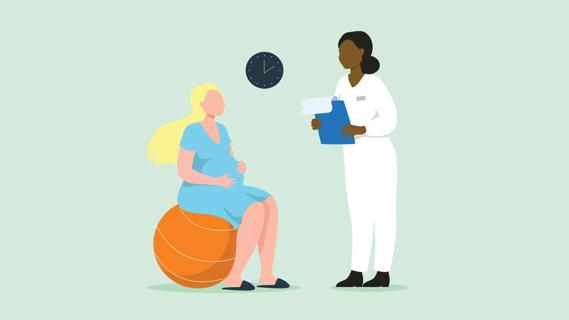
Use relaxation techniques and breathwork to help manage the discomforts of a medication-free birth
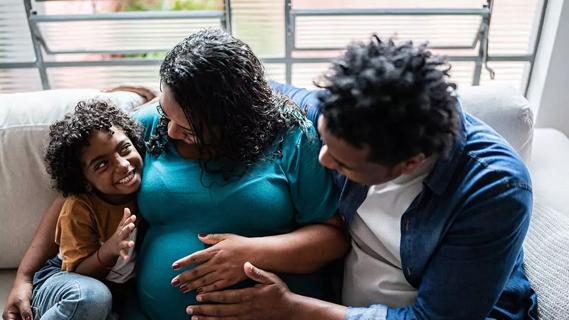
Talk with them about their new sibling early and often
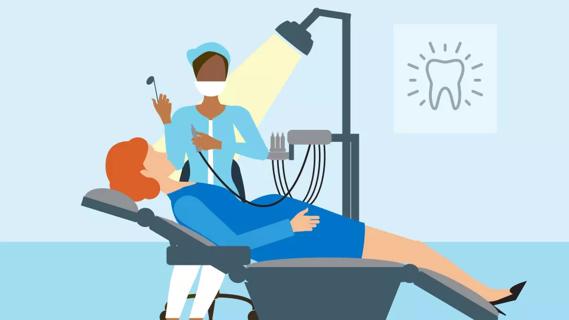
Dental care is not only safe during pregnancy, but it’s also highly recommended
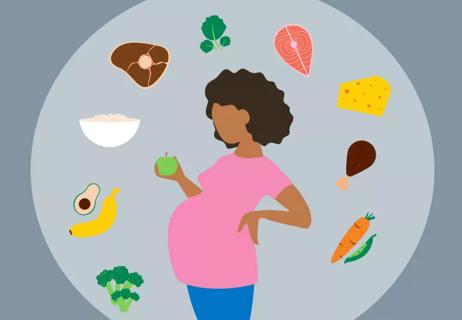
A healthy pregnancy diet includes good amounts of folic acid, DHA, calcium and more
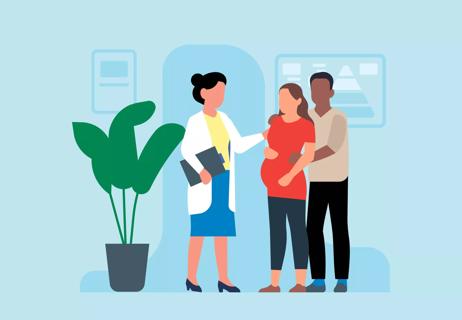
If left untreated, you risk complications, early labor and passing the infection to your baby

Your metabolism may torch 1,300 to 2,000 calories daily with no activity

A gentle touch in all the right places may help drain your sinuses